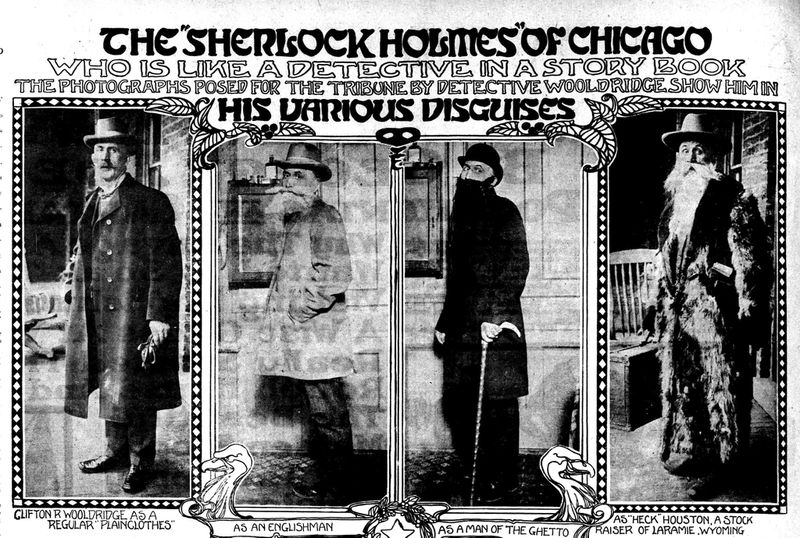
Francis O’Neill was a Chicago detective for many years before his appointment as police chief. His memoirs outline several interesting cases: how he helped upset confidence schemes and violent crimes such as the car barn bandits. One particularly interesting case was the capture and release of the anarchist Emma Goldman after the assassination of President McKinley. As dramatised in my novel Chief O’Neill: Francis didn’t think she was part of the plot and was instrumental in her release.
Perhaps even more colourful was detective Clifton R. Wooldridge, described in this recent article as the “Sherlock Holmes” of Chicago. Francis knew Wooldridge and ultimately had to let him go from the police force although he did defend him in the press:
“I can say this for Wooldridge,” Chief Francis O’Neill said in 1904 after censuring the detective for bad judgment, “in the last eight or nine months more get-rich-quick schemes that were fattening off the people of Chicago have been driven out of business than ever before in the same length of time.”
Chicago Tribune
By today’s standards, Wooldridge’s ingenious “disguises” are laughable. The “man of the ghetto” and “Heck” Houston in the above image are particularly risible. Perhaps Francis saw a kindred spirit in Wooldridge, a fellow policeman turned writer. You can read Wooldridge’s first book, “Hands Up! In the World of Crime, or 12 Years a Detective” in the internet archive. Unlike Francis, he didn’t confine his non-police activities to higher literary activities and wasn’t above a little graft himself:
A couple of months later, he announced his decision to stop writing books. Instead — sounding disturbingly like the hucksters he kept his eye on — he planned to sell by mail courses in the methods of police investigation, as well as a badge, for $15.
”The Sherlock Holmes of Chicago’ (Chicago Tribune)
Wooldridge died in poverty in Chicago in 1933. His eulogy in the Tribune described his career as “a stormy one, complicated by his literary activities.” Imagine Francis, in his elder years, reading of his former colleague’s demise. What might he have thought?